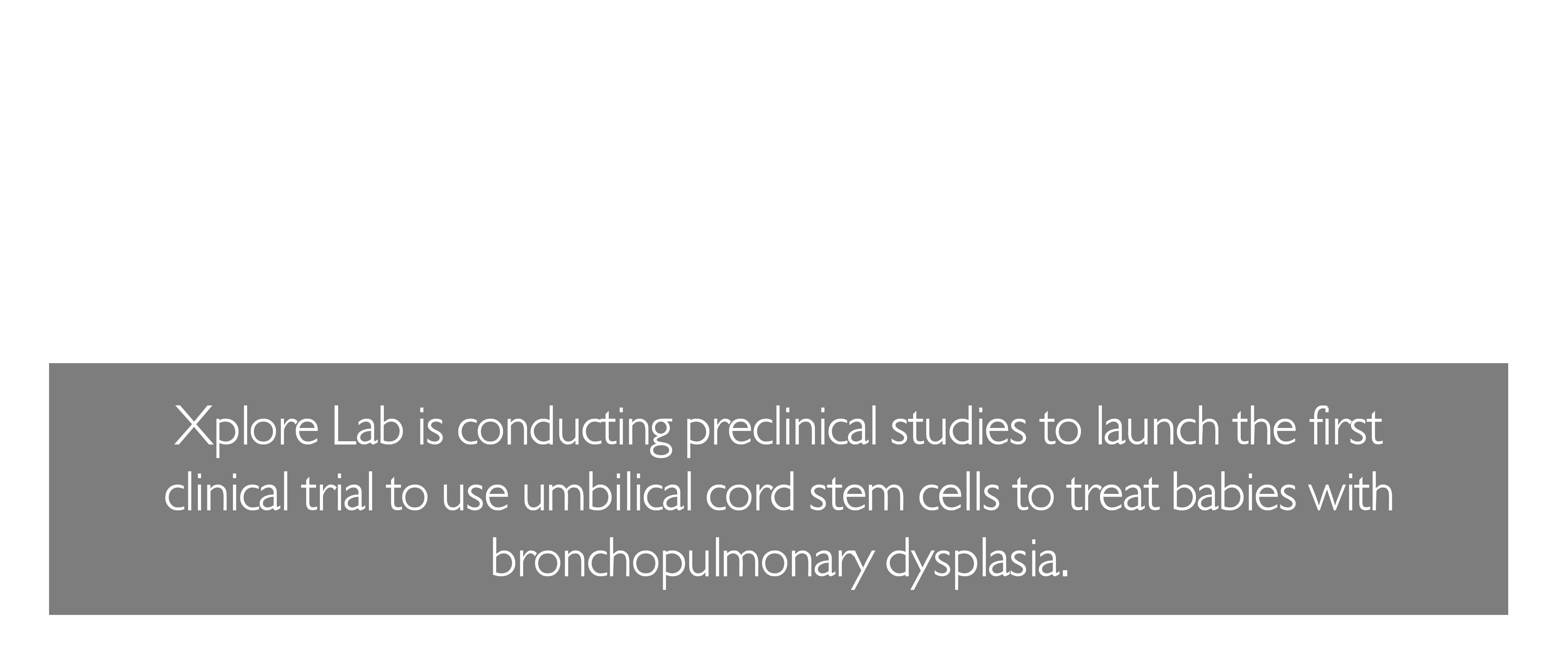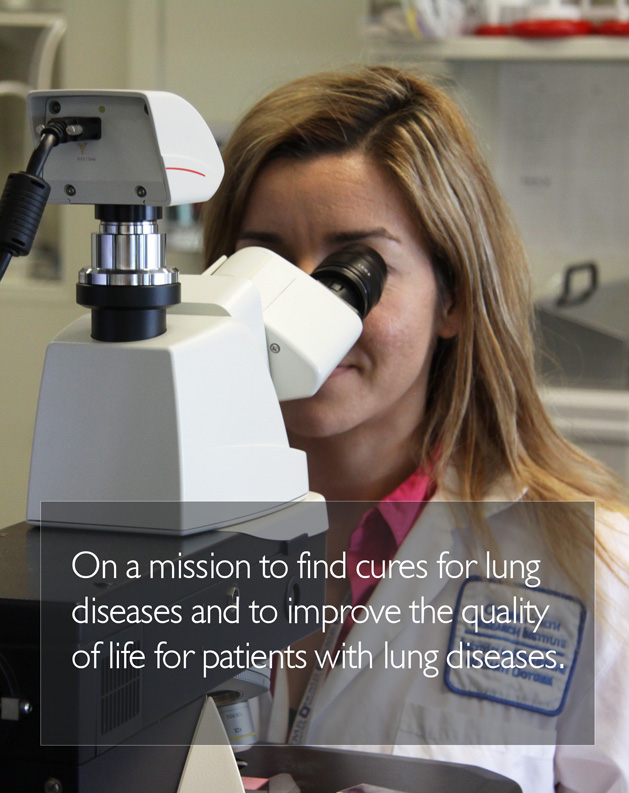
Our mission: to cure lung diseases.
Impact
Transformative research that matters.
 At Xplore, we focus on the important questions. To us, important means that the questions we ask and work to solve in the lab will lead to new treatments within the next five to ten years for patients with life-threatening and debilitating lung diseases.
At Xplore, we focus on the important questions. To us, important means that the questions we ask and work to solve in the lab will lead to new treatments within the next five to ten years for patients with life-threatening and debilitating lung diseases.
Bronchopulmonary dysplasia (BPD) is one of the most common chronic lung diseases in babies who are born prematurely. BPD is a side effect of the treatments we use to help these premature babies breathe until their lungs develop fully. Artificial ventilation (breathing machines) and extra oxygen help these babies survive, but at the same time it damages their still-growing lungs. This blocks the normal formation of the alveoli (the air sacs in the lung that allow oxygen to be inhaled and carbon dioxide to be exhaled) and the tiny blood vessels that run along these air sacs. Current research suggests that BPD results in long-term breathing problems, such as asthma, emphysema and pulmonary hypertension in adults. Pulmonary hypertension (high blood pressure in the lung) is also a growing problem in babies with various lung or heart diseases. In babies with lung diseases and reduced lung vascular growth, pulmonary hypertension can double the risk of death. Surfactant protein deficiencies are rare but life-threatening and debilitating genetic mutations that account for 10% of all childhood interstitial lung diseases. Babies born with surfactant protein mutations have trouble breathing at birth because the alveoli are collapsed.
Currently, there are no treatments for these diseases.
The Xplore lab is trying the change this. We investigate the mechanisms contributing to normal lung development. We use experimental models mimicking human lung diseases to learn how these mechanisms are disturbed during the disease process. From there, we plan new treatment strategies and test them in experimental models to assess their efficacy and safety with the outlook of translating the most promising therapies into the clinic.

